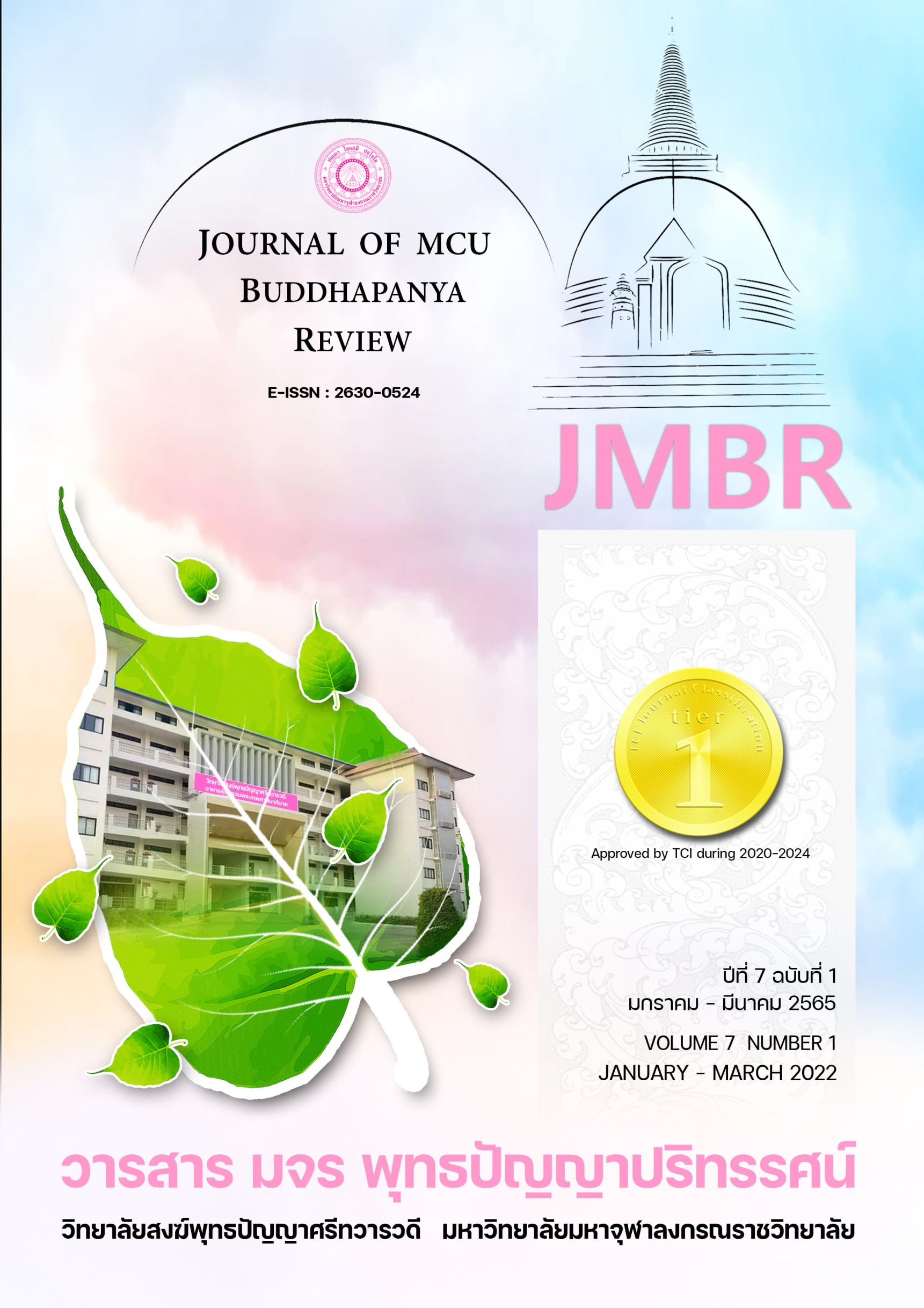รูปแบบการพัฒนาสมรรถนะครูยุค Thailand 4.0 สังกัดสำนักงานเขตพื้นที่การศึกษามัธยมศึกษาเพชรบุรี
TEACHERS COMPETENCY MODEL IN THE ERA OF THAILAND 4.0, PHETCHABURI SECONDARY EDUCATION SERVICE AREA OFFICE.
คำสำคัญ:
รูปแบบการพัฒนา, สมรรถนะ, Thailand 4.0บทคัดย่อ
บทความวิจัยนี้มีวัตถุประสงค์เพื่อ 1) ศึกษาสภาพปัจจุบันของสมรรถนะครูยุค Thailand 4.0 สังกัดสำนักงานเขตพื้นที่การศึกษามัธยมศึกษาเพชรบุรี 2) สร้างและตรวจสอบรูปแบบการพัฒนาสมรรถนะครูยุคประเทศไทย 4.0 สังกัดสำนักงานเขตพื้นที่การศึกษามัธยมศึกษาเพชรบุรี 3) ทดลองใช้และประเมินรูปแบบการพัฒนาสมรรถนะครูยุคประเทศไทย 4.0 สังกัดสำนักงานเขตพื้นที่การศึกษามัธยมศึกษาเพชรบุรี วิจัยนี้เป็นการวิจัยแบบผสานวิธี โดยดำเนินการ 3 ขั้นตอน พื้นที่วิจัย ได้แก่ จังหวัดเพชรบุรี กลุ่มตัวอย่าง คือ ผู้อำนวยการ รองผู้อำนวยการ ครู เลือกแบบเจาะจง จำนวน 16 คน เครื่องมือที่ใช้ในการวิจัยมี 2 ชนิด คือ 1) แบบสัมภาษณ์แบบกึ่งโครงสร้าง 2) แบบสอบถาม วิเคราะห์ข้อมูลเชิงปริมาณโดยใช้ ค่าเฉลี่ย และส่วนเบี่ยงเบนมาตรฐาน ส่วนการวิจัยเชิงคุณภาพ ใช้การวิเคราะห์เนื้อหา ผลการวิจัยพบว่า 1) สภาพปัญหาสมรรถนะครูยุค Thailand 4.0 ครูจัดการเรียนรู้ที่เน้นนักเรียนเป็นสำคัญ ครูผู้สอนออกแบบการเรียนรู้ยังไม่หลากหลาย นโยบายระดับกระทรวงศึกษาธิการที่เปลี่ยนบ่อยมีผลต่อสมรรถนะของครู สื่อ นวัตกรรมด้านเทคโนโลยีมีไม่เพียงพอ ปัญหาขนาดของโรงเรียนมีผลต่อการจัดกิจกรรมการเรียนการสอน โรงเรียนขนาดใหญ่และกลางมีปัญหาน้อยกว่าโรงเรียนขนาดเล็กขาดความรู้ในการเลือกและใช้สื่อนวัตกรรม เทคโนโลยีให้เหมาะสมกับเนื้อหาและวัยของผู้เรียน ควรเสริมสร้างการสร้างแรงบันดาลใจแก่นักเรียน นโยบายระดับกระทรวงศึกษาธิการที่เปลี่ยนบ่อยมีผลต่อสมรรถนะของครู สื่อ นวัตกรรมด้านเทคโนโลยีมีไม่เพียงพอ 2) รูปแบบการพัฒนาสมรรถนะครูยุค Thailand 4.0 สังกัดสำนักงานเขตพื้นที่การศึกษามัธยมศึกษาเพชรบุรี ใช้ กระบวนการบริหารด้วยระบบการมีส่วนร่วม และใช้แนวคิดในการบริหารแบบ 7s McKinsey มาประยุกต์ใช้ในการบริหารจัดการ และใช้กระบวนการพัฒนาเชิงปฏิบัติการ (PAOR) ด้านความถูกต้องและความเหมาะสมอยู่ในระดับมากที่สุด 3) ทดลองใช้อยู่ในระดับมากที่สุด และการประเมินรูปแบบด้านความเป็นประโยชน์และความเป็นไปได้อยู่ในระดับมากที่สุด
เอกสารอ้างอิง
Amornrat Santhuankaew and Wittaya Chansila. (2020. July - September). Model of the development of guidance teacher competency in secondary schools. Under the Office of the Basic Education Commission. Education Journal Naresuan University. 22(3). 288-298.
Cronbanch, LEE. J. (1990). Essentials of Psychological Testing. 5th ed. New York: Harper Collins Publishers. Inc.
Darunee Boonkhrong. (2017). An Analysis of Thai Educational Management Approaches and Driving Education. To the age of Thailand 4.0. Walailak Cultural Ashram: School of Liberal Arts Walailak University
Eisner, E. (1976). Educational Connoisseur and Criticism: Their Form and Function in Educational Evaluation. Journal of Aesthetic Education, 39(2): 192-193.
Keerati Kuvasanon. (2017). Learning management towards a learner's way is important. Bangkok: Natchawat Company Limited
Krejcie, R. V.; & Morgan, D.W. (1970). Determining Sample Size for Research Activities. Educational and Psychological Measurement. 30(3): 607-610.
McClelland, D.C. (1999). “Identifying Competencies with Behavioral-event interviews” .Psychological Science,9(5). Retrieved December 11, 2005.
Ministry of Education. (2010). Basic Education Core Curriculum 2008. Bangkok: Ministry of Education.
Office of the Education Council Secretariat. (2017). National Education Plan 2017 - 2036. Bangkok: Prikwan Graphic Company Limited.
Office of Academic Affairs and Educational Standards. (2010). Guidelines for measuring and evaluating learning outcomes According to the Core Curriculum of Basic Education, B.E. 2551. Print No. 2. Bangkok: Agricultural Cooperative Association of Thailand Printing House Co., Ltd.
Phenchan Sinthuchet. (2017). Education in this era. (Digital Era): Thailand 4.0. The 3rd National Academic Conference, Faculty of Education, Lampang Rajabhat University
Phra Mahachakphan Jakkawaro (Nawa Kaew) and Phra Maha Chakrabhand (Im Thap). (2020. January – April). Creating social responsibility. Journal of M.R.P. Buddhapanya Paritas 5(1): 4-7.
Phawan Thanalertsomboon. (2021). Thai Education 2020: A Lesson on Inequality, Accelerated and Cruelty Edition. Retrieved June 10, 2021. From https://www.the101.world/thai-educational-inequality-2020/.
Satinee Phongaksorn Saowanee Sikkhabandit and Peerapong Sitthiamorn (2018), July-December). Quality management model of educational management at the basic education level to develop to international standards. academic journal University of North Bangkok. 7(2): 198-212.
Secondary Education Service Area Office Area 10. (2020). Fiscal Year 2021 Action Plan. Phetchaburi: Group Policy and Plan Secondary Education Service Area Office District 10.
Sub-committee on the preparation of knowledge of the Constitution of the Kingdom of Thailand in the Knowledge Management Committee of the Secretariat of the House of Representatives. (2017). Knowledge about Constitution of the Kingdom of Thailand and knowledge of constitutional preparation, Thai book edition. Bangkok: Publishing Office Office of the Secretariat of the House of Representatives.
Thawatchai Ouipanich. (1993). Operations of Educational Supervision of Elementary School Administrators. Under the Office of Primary Education, Rayong Province. Master of Education Thesis Kasetsart University.
Wichai Wongyai and Marut Pattaphol (2018). New horizons of learning to create the future. Bangkok: Charansanitwong printing.
ดาวน์โหลด
เผยแพร่แล้ว
รูปแบบการอ้างอิง
ฉบับ
ประเภทบทความ
สัญญาอนุญาต
ลิขสิทธิ์ (c) 2022 วารสาร มจร พุทธปัญญาปริทรรศน์

อนุญาตภายใต้เงื่อนไข Creative Commons Attribution-NonCommercial-NoDerivatives 4.0 International License.



